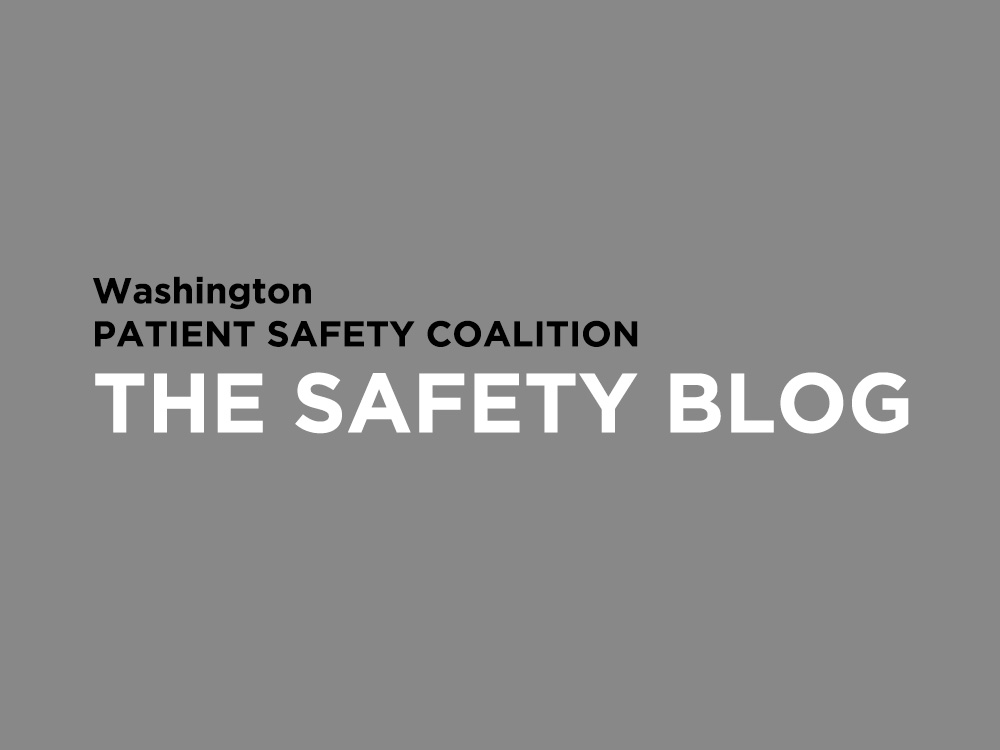- FHCQ Foundation for Health Care Quality
- COAP Care Outcomes Assessment Program
- Spine COAP Care Outcomes Assessment Program
- SCOAP Care Outcomes Assessment Program
- OBCOAP Care Outcomes Assessment Program
- CBDR
- Smooth Transitions
- WPSC Patient Safety Coalition
- Bree Collaborative Bree Collaborative
- Health Equity Health Equity
- Admin Simp
- Contact Us
Medication Safety Champion: Jennifer Waters

Medication Safety Champion: Jennifer Waters
In celebration of National Pharmacist Month, the Washington Patient Safety Coalition is featuring an ongoing series of blogs from clinicians on the front line of medication reconciliation efforts. As October 20th is National Pharmacy Technician day, we are highlighting the roles that pharmacy technicians everywhere are playing in keeping patients safe through increased attention to medication safety. This blog was submitted by Jennifer Walters, of MultiCare Health.
Q: What are some of the best tools, practices, or educational materials that you use to increase adherence or patient engagement around medication safety? Please provide observations or suggestions you have learned from your work that would improve the accuracy of the medication reconciliation process.
A: In 2010, Multicare Health System Pharmacy Services started providing medication reconciliation on a part time, evening shift basis in Tacoma General’s Emergency Department. Now, in 2015, we provide medication reconciliation full time, both day and evening shifts, for Tacoma General Hospital, Mary Bridge Children’s Hospital, Allenmore Hospital, Good Samaritan Hospital, and Auburn General Hospital. At our Tacoma General/Mary Bridge 500 inpatient bed campus we have three full time technicians on a daily basis covering 18 hours a day, strictly devoted to medication reconciliation.
Through the course of developing this program, great strides have been made to document our processes and we work to constantly improve them as more resources come into play. Maintaining technician staff that are fully trained and have great attention to detail is imperative. The expectations for complete accuracy are very high for these specially trained staff. A Competence Based Learning (CBL) module has been developed, with required competencies such as up to date drug knowledge. This knowledge is critical in order to recognize medications when a patient states he or she is taking them. Technicians need to have a general overall knowledge of a medication’s indication and usage in order to ask appropriate open-ended questions regarding the patient’s current course of therapy.
For example, a technician who knows that warfarin dosages fluctuate according to the patient’s frequently drawn International Normalized Ratio (INR) levels would know to ask the patient what dosages they take on what days, ascertaining the exact strength of the tablet. A technician who sees that a patient has an insulin pump needs to be fully trained on how to read pumps, check for basal rates, carb ratios, insulin sensitivities, and ensure the insulin in the pump is recorded accurately.. It is critical that technician staff not overlook these details. Technician staff print out all findings and compile them with any handwritten notes, and then record the details in the form of an electronic progress note in the patient’s chart. All of this documentation is then submitted to the pharmacist for review and co-signature.
With the advent of electronic health records, there is a much greater continuity of care not only within our own health system of hospital and community clinics, but also on a nationwide scale. With any facility that uses EPIC, we are able to see current medications prescribed with that facility. In RX HUB we are able to visualize current medications dispensed through community pharmacies, including quantities, days’ supply, prescriber name, and pharmacy name and location. Pharmacists also have access to the Washington State Prescription Monitoring Program where confirmation of current narcotic prescriptions can be verified. All of these sources hold immense value in our day to day operation and we are able to see a much bigger picture of the patient’s complete medication history.
I think there are still a lot of improvements that can be made to this process. Moving to full 24 hour coverage and a possible community clinic role would be ideal. I am passionate about the medication reconciliation process and I enjoy the challenge it provides.
Jennifer Waters, Ph T, Medication Reconciliation Technician
MultiCare Health System- Tacoma General and Mary Bridge Children’s Hospital
Inpatient Pharmacy
Recent Posts
- TakeCharge This Patient Safety Awareness Week: 5 Steps to Safer Healthcare
- Stigma & Bias in Healthcare: The Obstacles, Consequences and Changes Needed
- Agility in Crisis: How The Everett Clinic responded to COVID-19
- Collaboration over Competition: How Pediatric Hospitals Can Thrive When They Work Together
- Reducing Stress for Health Professionals During the COVID-19 Pandemic

